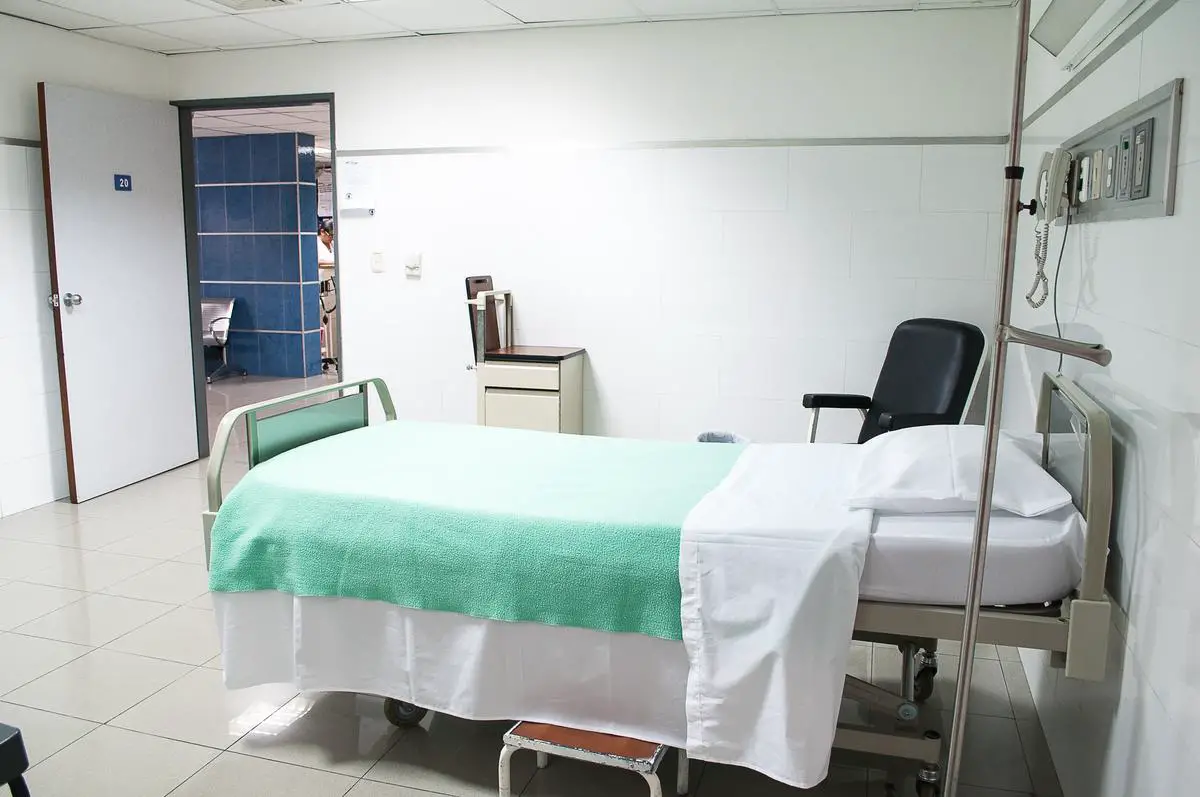We’ve all been there – the alarm clock doesn’t ring, the car won’t start, or a child wakes up with a fever. Life is unpredictable, and sometimes these unforeseen circumstances interfere with our best-laid plans for work. It’s crucial to know how to navigate these tricky situations effectively to maintain your professionalism. In this article, we explore a variety of last-minute excuses that can be used in instances when missing work is inevitable. While these excuses should be employed judiciously, they provide a plausible reasoning for unexpected absences from work.
Wake-up Alarm Malfunctions
Relatable Dilemma: The Classic Alarm Malfunction Excuse
We’ve likely all been there at some point. You’ve set your alarm, double-checked that AM wasn’t accidentally PM, and still, for some unfathomable reason, you have been stunningly betrayed by your alarm clock. Is it a glitch? Is it karma? Or does your alarm clock secretly hate you? Whatever the reason, you wake to find yourself now late for work.
The immediate panic and rush that follows are often seasoned with a pinch of self-reprimand. Distraught, you scramble for a plausible excuse that will both explain your tardiness and maintain your reliability in the eyes of your superiors. And nothing seems more relatable, understandable, and downright human than the ‘alarm clock malfunction’ excuse.
The Loyal Companion that Occasionally Failed
Alarm clocks – these unassuming devices are literal wake-up call machines we rely on to start our day. Perfectly armed with the snooze button, various annoying sound options, and the bright digital numbers that provoke your sleepy brain – they are our first line of defense against oversleeping.
Yet, despite their tireless service, instances of alarm glitches are common, making them a somewhat reliable scapegoat for those occasional unexpected late-mornings. The mishaps range from the mundane (it didn’t go off) to the dramatic (it inexplicably reset), yet they all share the ability to instantaneously turn your morning routine into a fiasco.
Going Beyond the Scapegoating: Making it Believable
The trick to using the ‘alarm clock malfunction’ excuse effectively is to own up to the situation straight-away. Your boss may raise an eyebrow, but by presenting the dilemma as a one-off unfortunate event, it shows that you’re not using it as a recurring excuse.
What makes this excuse work is the shared experience – it’s easy to empathize with, as most people have had a similar experience themselves. However, it’s essential to not overuse this excuse, as credibility may falter over time.
While the alarm clock malfunction excuse might not be foolproof, it’s common and honest enough to fall into the category of believable mishaps. The key is to make sure it remains an exception, not a habit. Because let’s face it, if your alarm clock ‘fails’ too often, your boss might start suspecting that the problem isn’t with the alarm.

Car Trouble
Car Trouble: A Common and Credible Excuse
A car is not just a means of transportation, it often feels like an extension of our very lives, essential for errands, social events, and of course, commuting to work. However, as any car owner knows, vehicles are also susceptible to unpredictable problems and breakdowns.
What do you do when your reliable machine decides to act up right when you’re supposed to be heading to the office? Not too many options apart from waiting for help or a tow truck – all while calling your boss to explain that you’ll be missing work.
Car trouble, a flat tire for instance, is an age-old, yet believable, reason for missing work that’s rooted in reality. It’s a situation that can strike anyone at any time and often cannot be resolved quickly, especially if one is not a car enthusiast or skilled mechanic.
An engine malfunction or overheating? Even worse. These issues are complex and certainly require professional intervention – meaning your car isn’t going anywhere anytime soon.
Reporting car trouble as a reason for missing work can be credible, but bear in mind it also depends on the frequency. Employers may begin to question the reliability of their workers’ vehicles if it becomes a recurrent excuse.
In a world where punctuality and presence are highly valued in the workplace, car problems are an inconvenience that can disrupt one’s work life. Yet they are sometimes beyond our control and can become a plausible reason for being unable to attend work.
Whether a tire blowout on a deserted highway or an unexpected engine breakdown in the garage, car troubles can sometimes serve as our ‘get out of work free’ card. However, use this excuse sparingly and truthfully, given its potential for abuse.

Unexpected Family Emergency
What to Expect: Life’s Unexpected Turns
Life’s unpredictability may sometimes throw you in situations where you’re left no choice but to prioritize the well-being of your family over your work commitments. Emergencies can happen anytime – someone might fall ill, an accident can occur, or there may be unforeseen complications that need immediate attention. These are valid reasons for missing work, as family should always come first.
The Excuse: An Unexpected Family Emergency
When it comes to calling in sick because of a family emergency, make sure you stress on the nature of the incident as being ‘unexpected.’ This gives your employer an understanding that it was an unplanned occurrence that you weren’t prepared for, and hence, could not foresee or inform about in advance. Here’s how to say it: “I apologize for the short notice, but an unexpected family emergency has arisen and I will be unable to come in to work today.“
The Aftermath: Gaining Understanding from the Employer
Remember, the key element here is communication. Once you’ve tackled the emergency, update your employer regarding your situation. You don’t have to go into explicit personal detail if you are uncomfortable, but convey enough information to explain your absence and when you’ll be able to return to work.
The Caution: Maintaining Credibility at the Workplace
While family emergencies are a legit reason for missing work, beware of playing this card too often. Your integrity might be questioned if you’re seen to have a ‘family emergency’ every other week. Therefore, use this excuse sparingly, and only when absolutely necessary. Otherwise, you may risk losing your credibility at the workplace. In essence, honesty is the best policy in maintaining a good work ethic and maintaining a positive professional relationship with your employer.

Photo by mdominguezfoto on Unsplash
Child or Dependent is Sick
The Unexpected: Child or Dependent is Sick
Things happen, that’s a fact of life and sickness is one of them. Especially when you have children or dependents who live with you.
Imagine waking up in the morning, you’re all set, you’ve prepared your morning cup of coffee to jumpstart the day, you have your work clothes ironed, your presentation is queued up and you’re all psyched to crush that meeting. But as soon as you enter your child’s room, the frown on their face strikes off all the tasks on your to-do list.
When your child or a dependent is unwell, other responsibilities take a back seat. It’s a situation that most employers understand and empathize with. It’s a genuine reason to miss work, and it’s generally understood that such situations are often unavoidable. Sickness can strike at any hour, rendering your child or dependent in need of immediate care.
In the United States, laws such as the Family and Medical Leave Act exist to protect workers with caregiving responsibilities. Under this law, eligible employees are entitled to 12 weeks of leave per year to look after a seriously ill child, spouse, or parent, or to care for a newborn or newly adopted/fostered child.
Thus, missing work because a child or dependent is sick is not just a plausible excuse but also protected by law, in certain circumstances. However, remember to maintain professionalism. Inform your employer or supervisor as soon as possible, and if possible, help to arrange for a substitute or make plans to compensate for your absence.
This sudden change of plans can be quite challenging, especially if you have projects or presentations lined up for the day. But at the end of the day, your dependents’ health should always come first. It is such priorities that instill empathy and understanding in the workplace. Instances like these underscore the need for better sick leave policies and a supportive work culture.

Illness or Personal Health Issues
A Sudden Bout of Flu: The Old Reliable Last-minute Excuse
Perhaps one of the oldest tricks in the book for calling out of work last minute is claiming to have the flu. This excuse is as reliable as it is familiar. From a mild fever to a full-blown flu episode, the range of illness-related excuses employees give are countless, and for the most part – believable.
Internationally recognized as a common pervasive disease, the flu hits indiscriminately, making it difficult for employers to question its validity as an excuse. This viral infection presents with symptoms that can range from mild to severe – headaches, body aches, fever, sore throat, fatigue – all are quite debilitating and commonly accepted as valid reasons for not being able to attend work.
A Caution About Frequent Usage of The Good Old Illness Excuse
Remember, though, using this excuse too often can lead to suspicion or potentially even a larger issue about attendance reliability. Occasional sickness is understandable, but regular absences may suggest substantive health problems that need addressing.
If you’ve found yourself regularly calling out of work for health reasons, it might be time to prioritize your health and seek medical care. Prolonged health issues may mean you need to be screened and evaluated by a professional.
Personal Health Issues: A Respectful Excuse
Maybe it’s not a case of the flu but chronic health issues that result in the occasional day off. Personal health issues such as migraines, mental health days, stomach issues, etc., can be quite incapacitating and equally valid excuses.
In our society, where mental health has gained more recognition in recent years, taking a day off for mental well-being is respected. It’s essential though, to communicate any ongoing issues to supervisors or HR, to ensure they’re aware you’re not simply avoiding work, but dealing with legitimate personal health issues.
Remember, the well-being of an employee is vital to their productivity and overall performance. An employee in good health is an asset to any organization. As such, making sure you take care of your own health should always be a priority.

Pet Emergencies
A Matter of Priority: When Pet Emergencies Don’t Wait
Just as human emergencies tend to respect no schedules and often happen at the most unexpected times, pet emergencies are no different. They do not discriminate between weekends and weekdays, business hours, or after-hours.
Pets, being an integral part of many families, contribute to the dynamics as much as any human member of the household. Hence, a sudden medical crisis involving a pet can sometimes not be postponed, leading to last-minute absences from work.
Many pet parents can relate to racing to the emergency veterinarian with their furry friend in the back seat. From a sudden food ingestion threat to unexpected traumas, dangers lurk around every corner for our beloved animals.
While preplanning plays a crucial role, contingency planning for pet care in case of emergencies sometimes fails. For example, vet appointments often need to be made during business hours due to limited after-hours services. Moreover, emergencies such as a pet being hit by a vehicle or eating toxic substances cannot be postponed until after work or the weekend.
Working professionals with pets must navigate these unexpected situations delicately. Honesty, responsibility, and communication become the vital tools in dealing with workplaces in such cases. Furthermore, companies with pet-friendly policies can often help mitigate the strain on their employees during such a crisis.
Pet emergencies, thus, are a significant last-minute excuse for missing work, which requires a high level of understanding from employers. Recognizing the critical role pets play in the daily lives of their employees will steer workplaces towards a much more compassionate and accommodating environment.
After all, as any pet owner can testify, our furry friends are not just pets, they are members of our families. Therefore, their emergencies are our emergencies, and sometimes, that means taking unexpected time off work.

Unexpected Household Issues
Too Much to Handle: When Household Issues Refuse to Wait
There’s nothing like waking up in the morning to the sound of a faucet leaking insistently or discovering that half the lights in your house suddenly refuse to turn on. It’s not just the dread of a major repair bill that makes such things problematic. It’s the sense of urgency accompanying these household emergencies that often necessitates someone to stay at home, oversee the fix, and be there if the problem escalates.
Plumbing leaks, for instance, can spiral from a minor inconvenience to significant water damage if not promptly addressed, potentially leading to mold buildup or structural problems. A continuous water flow could lead to a swollen water bill, or worse, flooding. In theory, one could leave this issue in the hands of a professional and scoot off to work, but in practice, leaving an ongoing water-related problem unattended at home can potentially lead to costly repercussions.
Then there’s the matter of sudden electrical issues. A flickering light might seem harmless enough, but it could be indicative of a more serious, underlying problem, such as a faulty electrical circuit – which, if left unaddressed, could pose a serious fire risk. Given these high stakes, ducking out to work and leaving these issues for later are not just financially unwise, but downright unsafe. This means that sometimes, the most responsible course of action is to call in a last-minute sick day to deal with these immediate household issues.
The essence of these excuses for skipping work does not lie in the desire to shirk responsibility, but rather the need to address pressing issues at home to prevent additional, potentially dangerous complications. This is why when those sudden household emergencies pop up, it may be more important to stay home than to soldier on at work.

Public Transportation Problems
Public Transportation: The Unpredictable World of Commuting
Public transportation, while a crucial lifeline for many who either can’t afford or opt not to have a personal vehicle, can also be a double-edged sword when it comes to maintaining a sturdy timetable. For those who make use of public transportation like buses, trams, trains, or ferries to reach work, a delayed arrival or sudden cancellation throws a giant wrench in the day’s schedule.
Our cities’ public transportation systems are often subject to circumstances beyond our control. From unexpected maintenance shutdowns to critical weather events, these factors can cause significant disruptions in the regularity of many public transit systems.
Notably, bus services can be a wild card. Late buses, particularly during peak commuting hours, are a common occurrence in urban areas. This is often due to heavy traffic congestion during rush hours that extends the usual travel time. On the other hand, train schedules, though typically more reliable, can be thrown off course by mechanical breakdowns or emergencies on the tracks that require immediate attention.
Then there are environmental factors. Consider how a heavy snowstorm can cause significant delays in above-ground train services, forcing commuting workers to find alternative transport or wait out the delays. Conversely, excessive heat can cause problems for many rail systems due to track expansion or equipment failure.
Moreover, scattered public transportation strikes can also leave workers stranded with no advance warning. Labor disputes within the transportation industry can lead to widespread strikes, causing immediate halt to services and leaving commuters without any practical, affordable alternative for getting to work.
Consequently, for those of us dependent on public transport, these hurdles can provide the perfect last-minute excuse for missing work. You’ve done everything you could. But ultimately, your arrival at work is at the mercy of those steering the bus or train, whether they’re contending with overflowing city traffic, dodging temperamental weather changes, handling technical glitches, or navigating labor unrest.

Bad Weather
Context: You can’t control the weather.
Significant weather events have a way of derailing even the most well-laid plans, and that includes getting to work. It’s often the case that when Mother Nature decides to flex, humans are simply caught in the crossfire. For employees living in regions known for temperamental or extreme weather conditions, changes in climate can quickly escalate from an inconvenience to a legitimate reason for missing work.
Heck, if you live in an area that’s notorious for harsh winters, it’s practically anticipated that you’ll probably have a snow day or two where it’s just not safe to brave the conditions. The same can be said for regions where heavy rain is a frequent occurrence. Sometimes, getting from point A to B isn’t feasible when the roads are covered in feet of snow or when they’re inundated with water.
Suddenly, the torrential downpour or the blizzard isn’t just bad weather, it’s a barricade between you and your office. It’s not all about the risk to your personal safety either. Taking to the roads in extreme conditions can be treacherous, not just for you, but other road users as well. The sensible, responsible decision in these situations is often to stay put.
Of course, the most intense weather scenarios come with their own names: hurricanes, cyclones, typhoons, tornadoes. Recognized globally as natural calamities, these events are certainly among the most understandable and justifiable reasons for missing work. For many people, in these situations, the focus is less on work and more on the critical priority of keeping their families safe and sometimes even evacuating their homes.
In these cases, it’s crucial to remember that jobs can be replaced, lives can’t. If you find yourself needing to take a day off due to extreme weather, be sure to communicate with your employer as soon as possible. Most understand that in the face of nature’s unpredictability, personal safety must always be the top priority. With the progression of remote working culture, you might even be able to stay home and continue working, proving that even the weather doesn’t need to stand in the way of productivity.
Written in an engaging way while making the weather sound like an epic supervillain, it’s clear, though: when it comes to valid reasons for missing work, bad weather has far more influence than we perhaps give it credit for.

Doctor’s Appointment
The Doctor’s Dilemma: Unforeseen Medical Appointments
Imagine this: it’s the night before an incredibly busy day at work. You’re mentally preparing yourself for endless meetings, countless reports, and exhausting interactions. Just when the gravity of the upcoming tasks begins to weigh you down, your phone buzzes, and it’s a scheduling reminder. It’s your long-forgotten medical appointment, or even worse, your dependent’s doctor’s visit, scheduled the next day, perfectly coinciding with your hectic work schedule.
The importance of healthcare, especially amid the prevailing conditions, needs no emphasis. Regular check-ups, treatments for chronic conditions, dental cleanings, eye exams, and related healthcare appointments are not just essential, but they often demand immediate attention.
Health is a finicky thing, it doesn’t enjoy the luxury of waiting or being put off. It’s random, sudden, and can force immediate changes to your plans, making it a legitimate excuse for missing work. While it might be tempting to reschedule, some appointments like surgery or consultations with specialists are lined up after a lengthy waiting period and getting a new appointment might take weeks, if not months.
If you find yourself in this predicament, it’s worth being up-front with your employer. Keeping in mind the potential long-term repercussions on your health, the importance of attending that medical appointment overshadows the immediate work deliverables. More often than not, employers understand the necessity of these appointments.
Furthermore, many companies today offer options like working from home or flexible working hours to accommodate such unforeseen hiccups in schedules. So, if you can, try and organize your work so that despite your absence, the operation continues as smoothly as possible.
Remember, even if it’s last minute, an unscheduled doctor’s appointment is not just a passable excuse. It’s a vital part of maintaining well-being, and most employers, cognizant of the importance of employee health, are likely to support it. So, don’t stress, attend to your health, you don’t want the guilt of skipping a doctor’s appointment keeping you up at night.

Understanding the potential excuses for missing work can be advantageous when you find yourself in a tight spot. However, it’s always crucial to exercise honesty and integrity in your professional dealings. Frequently using such excuses can lead to suspicion and affect your credibility. Emergencies may arise, but if they become the norm rather than the exception, it may be time to reassess your commitments or time management. Use this guide as a reference, and remember the importance of maintaining a strong professional reputation by ensuring your absences are genuine exceptions, not the rule.

Recent Comments